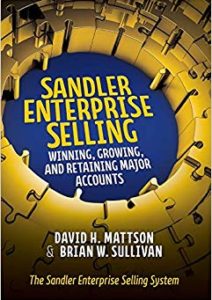Long-term clients are things of beauty. Hard-earned and highly profitable. It’s a noble goal, for sure, winning and keeping these treasured assets that deliver streams of revenues and profits fueling organizational growth. But noble as the goal is, making the relationships sustainable requires commitment, focus, and significant investment over time. Clients for life don’t come easy.
There’s another type of relationship that has tremendous similarity to major account partnerships, That’s right – marriage. When two people begin the courtship phase of a budding relationship, that romantic time involves both parties showcasing their very best to their future partner. The hope of both parties, of course, is to be viewed positively with every touchpoint, literally and figuratively speaking. On the business side, in a major account pursuit, selling organizations work diligently to show responsiveness, attention to detail and follow-up in every transaction, hoping similarly to be viewed positively every step of the way. In love and commerce, a great deal goes into winning long-term affection. Truth be told, though, it’s when the contract is signed and the “I do’s” have been said, that the real work begins in both situations. That’s when the clock starts ticking on “‘Til Death Do Us Part”.
I’ve spent a lot of time working with organizations that struggle with client retention. As you may have previously read, I’ve morphed a quote about marriage into a selling version. “Account retention is not a noun. It’s a verb. It’s not what you get. It’s what you do”.
Great quote. Remembering the grim statistics about both divorce and major client churn, what is it that you do? What are the important actions to help insure that you retain these treasured assets that deliver huge long-term value? First, communicate consistently and frequently, making certain that your care and attention ring out as clear as a bell. And maintain a culture of mutual respect and common goals, showing by your words and actions that you understand what is most important to your partner and that you’ll never fail to help them achieve what matters to them. And, of course, as those familiar with both marriage and major account relationships will share, you adapt. Things change. Situations evolve. People and organizations shift, sometimes quickly and sometimes slowly. Change, though, is likely the only thing you can count on. So, with major accounts, you must always be aware of where you stand. But what’s more important is your ability to adapt and act on where you stand in every area that matters. For not acting to constantly improve, in both marriage and major account relationships, makes separation simply a matter of time. Complacency has no place in either scenario.
Shifting to the business side, what can you do to increase the likelihood that your major accounts come as close as possible to that “Client for Life” goal? What practical actions can you take? Take a moment and think. Most selling organizations serving major accounts are structured for two scenarios that repeat themselves over and over in the journey of significant client relationships. They are taking advantage of opportunities and fixing delivery problems. Every hour, every day. Rinse, lather, repeat. Of course, reacting quickly to opportunities and problems is very important. But major accounts are marketplaces in and of themselves, ecosystems demanding much more than quick response. Your comprehensive understanding of what matters most to your client is vital. And applying that knowledge to the critical areas of account retention is a survival skill. If you’re not tracking your performance in those areas, constantly gathering information and acting to improve your levels of service, your partnerships are in jeopardy.
What are the areas in which your performance will have the greatest impact on keeping or losing major accounts? I’ve shared my “Big 14” before, those that, simply put, dictate whether you stay or go. There are others, of course. And some are more important in certain business models than others. Trust, though, that these are huge:
- Your Delivery of Real Value
- Ease of Communication and Access
- Your Buyer Network Coverage
- High-Level Executive Relationships
- Your Relevance in the Account – Going Deep and Wide
- The Variety of Products/Services you Deliver
- Your Wallet Share of Winnable Business
- Your Forecasted Account Revenue Growth
- The Profitability Levels in your Account Business
- Your Delivery Performance
- Your Understanding of the Account and its Industry
- The Account’s Satisfaction Levels
- The Trust Levels in the Relationship
- The Account’s Dependence on You
But how can you act on these to increase your chances of true relationship improvement? Start by gathering your account team in frequent retention sessions to develop honest evaluations and ratings of your performance in each of the “Big 14”. If your team members don’t know enough to develop ratings in certain areas, that’s a problem. Start digging to discover information by using your network, client contacts, partners and others to connect the dots. Coming up short in account intelligence is unacceptable. With your realistic ratings developed, the next step is the most important. As a team, craft action items for each area to drive practical improvement, even in areas where your ratings are positive.
Improve. Now and always.
Major account relationships are hard to win and harder to keep. Stay on top of your performance to insure that the improvement actions you take are highly visible to your accounts. Remember, they chose you as a partner for a reason. And they reconfirm that every single day. It’s your job to make sure they never question their decision.






Comments